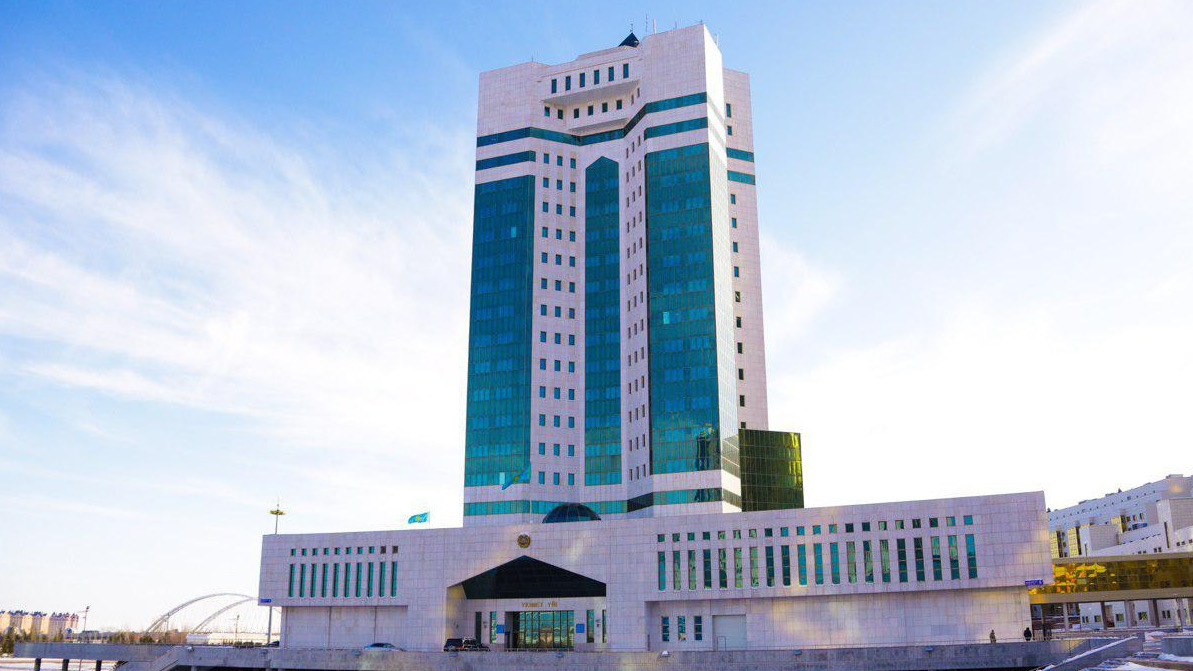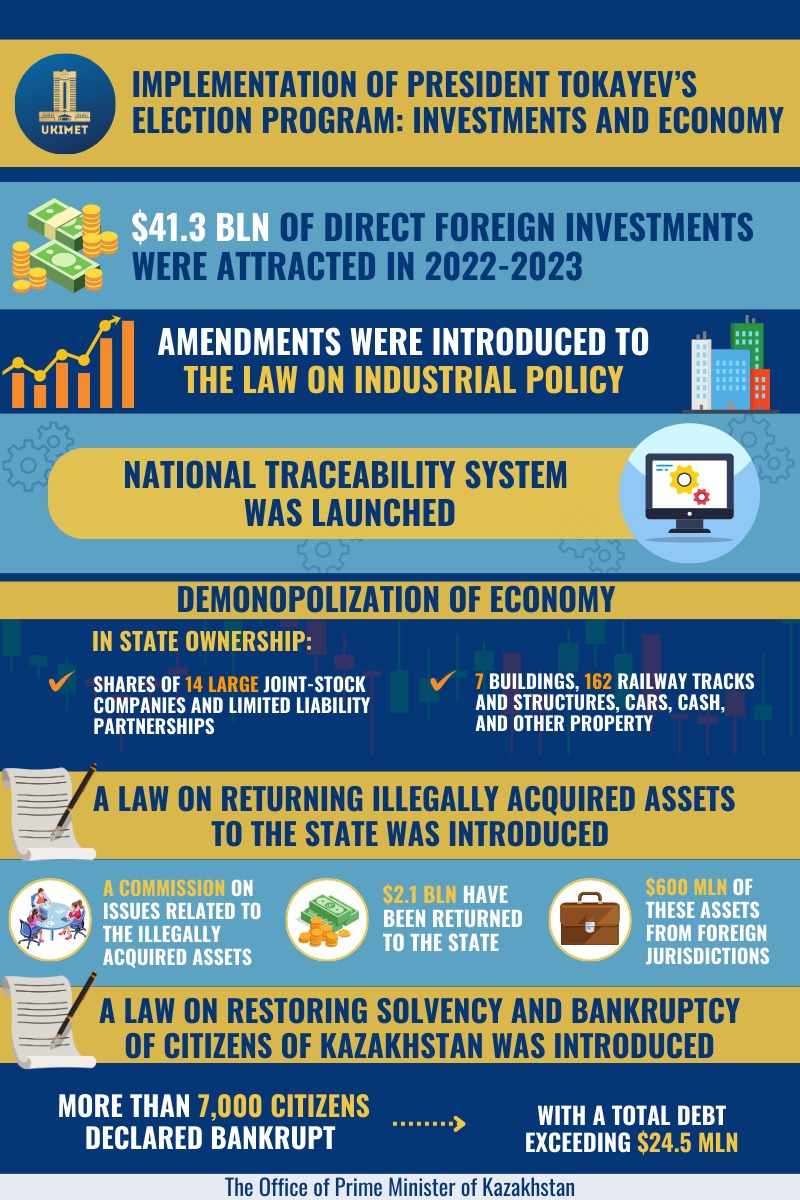ASTANA — In November of last year, President Kassym-Jomart Tokayev unveiled his ambitious election program titled Just Kazakhstan – for all and for everyone, signaling a commitment to usher in a new economic era. A Nov. 22 article from the Kazakh Prime Minister’s press service provides a comprehensive overview of the significant strides made during the past year in implementing these reforms.

The building of the government in Astana. Photo credit: primeminister.kz.
Economic Transition and Foreign Direct Investment
President Tokayev’s election program highlighted the imperative to transition to a new economic model, focusing on eliminating the unfair practices of monopolists. The goal was to demonopolize the economy and reduce the state’s presence in business, easing bureaucratic pressure on honest enterprises. In the fiscal year 2022-2023, the nation successfully attracted an impressive $41.3 billion foreign direct investment.

Industrial Policy and National Traceability System
Amendments to the Law of Kazakhstan on Industrial Policy were introduced to bolster domestic production and non-resource exports. These changes aimed at fostering transparency in the supply chain by obligating the exchange of raw materials between domestic manufacturers and industrial entities. The introduction of the National Traceability System further enhanced transparency in the sale of goods from manufacturers to end consumers.
Demonopolization Efforts and Asset Recovery
Systematic efforts to demonopolize the economy have yielded substantial results. The Demonopolization Commission’s work led to the transferring shares of 14 large joint-stock companies and limited liability partnerships, seven buildings, 162 railway tracks and structures, cars, cash, and other property to public ownership.
A new law was enacted to facilitate the return of illegally acquired assets to the state. It marked a coherent continuation of President Tokayev’s economic and political reforms. This legal framework specifically applies to oligopolistic entities that either possessed their own administrative and power resources or had the potential to benefit from such support. At the same time, the legislation ensures the complete protection of the interests of bona fide investors.
Under the leadership of the Prime Minister of Kazakhstan, a dedicated Commission has been established to oversee the return of unlawfully acquired assets to the state. This Commission comprises individuals with a civic stance, including public figures, parliamentary deputies, and government members.
Currently, assets valued at nearly 1 trillion tenge ($2.1 billion) have been returned to the state. Some $600 million of these assets have been reclaimed from foreign jurisdictions, including $15 million (UAE), $82 million (Austria), $260 million (Liechtenstein), and $2 million (Hong Kong)
Tax Code Revision and Shadow Economy Reduction
A new Tax Code is in development to improve fiscal policy, incorporating feedback from experts, economists, and the business community. Concurrently, discussions on introducing a tax on luxury items are underway. President Tokayev emphasized the need to reduce the shadow economy to 15% of GDP by 2025, aligning it with the standards observed in Organization for Economic Co-operation and Development (OECD) countries. In 2022, the shadow economic activity within the country stood at nearly 18.7% of GDP, surpassing the planned target of 19.9%. To pursue the objectives outlined in Tokayev’s Election Program, a comprehensive action plan to combat the shadow economy for 2023-2025 has been revised and implemented.
Bankruptcy Law and Citizen Solvency
The recently enacted Law on the Restoration of Solvency and Bankruptcy for citizens of Kazakhstan marks a significant step in addressing debt-related challenges. This legislative initiative introduces a solvency restoration process that empowers individuals to establish a court-approved installment plan for debt settlement, spanning up to five years. Developed in collaboration with a financial manager, the recovery plan undergoes a thorough court approval process.
A noteworthy advantage of this approach is its ability to circumvent bankruptcy status, sparing individuals from the ramifications. After completing the solvency restoration procedure, individuals retain eligibility for loans from banks and microfinance organizations. Notably, reinitiating bankruptcy proceedings is only available after seven years. Additionally, their financial standing undergoes scrutiny three years after concluding the bankruptcy process.
The holistic approach includes extrajudicial bankruptcy processes, solvency restoration, and judicial bankruptcy avenues, providing debtor relief.
Tariff Reform and Consumer Rights
A tariff reform initiative, guided by principles of transparency and accountability, has been set in motion. The digitization of the Monopolist database and the transition of enterprise procurement to electronic formats signify a commitment to modernize regulatory processes. Consumer rights are safeguarded through public and technical expert involvement, with temporary compensatory tariffs enforced in case of violations.
President Tokayev’s vision for a fair and inclusive Kazakhstan set in motion transformative reforms countrywide. As the country moves forward, the collective efforts to stimulate entrepreneurship and protect the rights of citizens and businesses alike provide a promising foundation for sustained growth.

